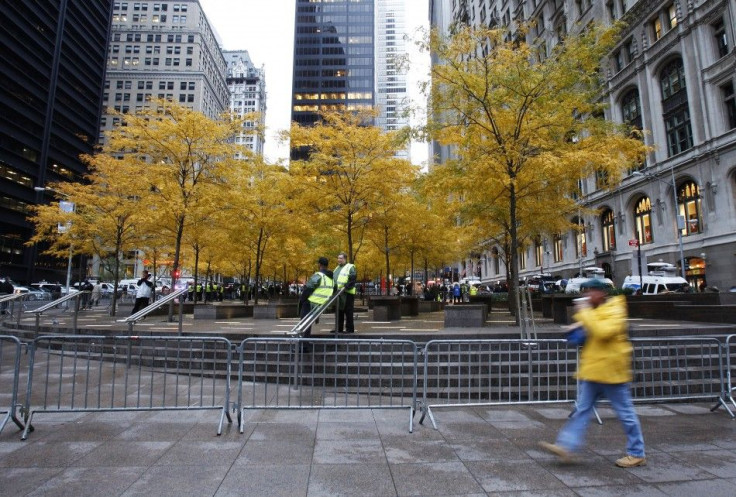Occupy Wall Street: Fresh Complaints for Old New York Problems
ANALYSIS

Coffee. A simple two-syllable word, great morning starter and customizable in a way most drinks aren't. The word coffee is also the truest linguistic test for deciphering who is and isn't a native New Yorker.
The aboriginal are so used to saying kaw-fee, they treat anything else as a mispronunciation. Non-natives? They drink cah-fee. Other words can be added to the list: dawg, yawn, dawn, and cawps (police).
As the throngs of antsy masses returned to Zuccotti Park Tuesday night, one thing became clear: Their voices were devoid of the staccato and brusque inflection of a New Yorker's patois. Almost none of the occupiers, it seems, start their mornings with a cup of kaw-fee.
A casual poll asking, Where are you originally from? elicits all corners of the United States. Minnesota, Wisconsin, Washington, Pennsylvania, and Connecticut. No husky Da Bronx, intense Bwooklyn, or clipped Flushing, Queens. (Unless you ask the cawps).
And so while the mood of Occupy Wall Street has turned to righteous indignation, the response in the editorial pages of the local New York rags and many natives has been, Alright kids, that's enough.
OWS: Truly of New York?
The eviction of the protestors from Zuccotti Park Monday night resembled a host body convulsively rejecting an unwanted implant. Occupy Wall Street lambasts, rightly, many social and economic ills. But is it native to its home base?
The protest was injected into the streets of Downtown Manhattan, started by a Canadian publication, Adbusters. It found its footing on a very obvious stage, and has taken off internationally. But the masses at Zuccotti Park, clad in plaid shirts, catchy slogans and general accord? They're a far cry from native New Yorkers, whose genes seemingly mutate to include an independence and pragmatism often mistaken for unfriendliness.
See, New Yorkers don't genuinely dislike everyone around them. They've just got enough troubles of their own to justifiably avoid adopting everyone else's.
A simple YouTube search of Occupy Wall Street argument will yield a whole host of kaw-fee drinkers trying to reason with the demonstrators. To varying degrees, the arguments fail to capture the true issue: What the protestors detest is a decades-old part of New York life, and never merited the birth of a movement.
Like income inequality. According to the Census Bureau, New York beats out the rest of the nation in income inequality by several variant measures. Yet the Number 4 Train subway line connects the seemingly gilded streets of the Financial District Street to the more impoverished parts of Brooklyn and the Bronx.
The injustices of Wall Street? It's a tough argument to make in a city that saw the financial industry's boom fund 13 percent of the city's tax revenue before the fiscal downturn, according to New York State Comptroller Tom DiNapoli. That figure has since dropped to 7 percent. DiNapoli also estimates every job gained (or lost) leads in the sector to the creation (or loss) of two other jobs in the city, and another in the state. The wisdom of New York's dependency upon the financial industry is a worthy of debate -- one seemingly off the Occupiers' radar.
That's not to say New York cannot lead a national movement (some of Occupy's biggest backers are New Yorkers). As home to Seneca Falls, many early New Deal principles, and the reforms implemented after the Triangle Shirt Waist Fire disaster in 1911 that killed 146 garment workers, and the Stonewall Riots, the city and state have been the breeding ground for many of the nation's socially conscious movements. But Occupy Wall Street?
The current injustices protested in Zuccotti Park are old news. New Yorkers feel it is best to just keep quiet, find your role in the mess, and enjoy each cup of kaw-fee.
© Copyright IBTimes 2024. All rights reserved.











